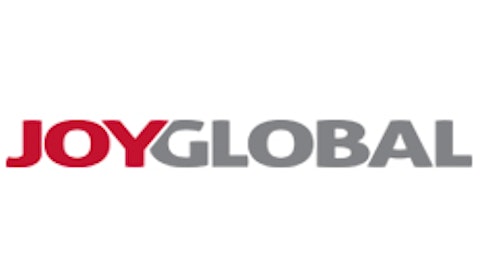There’s an interesting trend afoot: Non-retail companies are taking a serious interest in the retail space. While the presence of Amazon.com, Inc. (NASDAQ:AMZN) has inspired many analysts and bloggers to opine the death of retail, these companies are looking to build their own storefronts and further extend their brands. The two most interesting companies coveting the retail space are Under Armour Inc (NYSE:UA) and Google Inc (NASDAQ:GOOG).
The Case for Under Armour
Under Armour’s interest in operating its own retail space is a bit more obvious than Google Inc (NASDAQ:GOOG)’s but still seems counterintuitive. The company has benefited from its presence in both department and sporting goods stores, avoiding the costs of a large retail operation while still maintaining a sizable retail footprint. Adding its own storefronts to the mix would also add costs and put additional demands on management; why would the company ruin a good thing? International growth.

Rival athletic apparel company Lululemon Athletica inc. (NASDAQ:LULU) has proven standalone retail can work domestically, but that doesn’t necessarily translate well internationally. The company has had tremendous success in the retail space, coming in third on RetailSail’s 2012 Chain Store Productivity Guide in terms of sales per square foot. However, Lululemon also lacks a significant international presence, despite having an impressive retail operation. While Lululemon doesn’t currently have an international presence, its CEO Christine Day does have experience with international expansion. Prior to taking the job at Lululemon, she spent 20 years at Starbucks Corporation (NASDAQ:SBUX) and led its Asian expansion. If LULU fails to build a solid international presence over the next few years it might not bode well for Under Armour’s international ambitions.
The Case for Google Inc (NASDAQ:GOOG)
Google Inc (NASDAQ:GOOG)’s case seems a bit tougher, though rival Apple Inc. (NASDAQ:AAPL) has proven that the standalone retail model can work. Apple boasts the most productive retail space in the market, pulling in $6,050 in sales per square foot across roughly 400 stores worldwide. Tiffany & Co. (NYSE:TIF) is a distant second with $3,017 per square foot, and it outperforms its closest competitor by more than $1,000 per square foot. One thing is clear, tech retail can do very well.
The biggest issue for Google Inc (NASDAQ:GOOG) is convincing the world it can do more than build great software. While its Android OS has captured a large portion of the smartphone market, Google’s hardware track-record is rather short. Using retail space to highlight hardware is a play right out of Apple’s book and one that Microsoft Corporation (NASDAQ:MSFT) has recently seen some success with as well. Microsoft, once synonymous with software, has transitioned into both hardware and retail, opening 30 stores with 11 more on the way.
The stores have allowed Microsoft to highlight the Xbox and its ecosystem as well as its Windows Phone and Surface tablet. Google could conceivably do the same and may benefit more, particularly given the sea of Android devices on the market. It also helps that the search giant already has some experience selling branded devices, offering its Nexus line of devices through its own web portal, even if it initially received a tepid response.
Highlighting its own devices could help them stand out from the pack, though it may put current hardware deals at risk. Currently Google relies heavily on OEMs to produce Android and Chrome devices; pushing their own devices too much may jeopardize longterm market share. A store front would also give Google the opportunity to have much finer control over the sales staff surrounding their products and allow the company to better build an experience around their devices. This might become a particularly decisive advantage as Google Glass hits the market, allowing Google to have a direct connection with each potential customer for the device.
A Tale of Two Stores
In the end, as counterintuitive as it may seem, embracing retail has the potential to serve as a positive catalyst for both companies. There are pitfalls to the retail approach for both, but with careful management they should be easily avoided.
The article Retail Could Boost These Two Stocks originally appeared on Fool.com and is written by Chris Moore.
Copyright © 1995 – 2013 The Motley Fool, LLC. All rights reserved. The Motley Fool has a disclosure policy.





